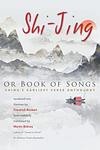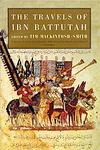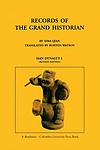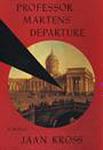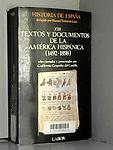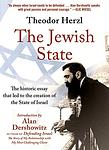The Greatest Non-Western "History" Books of All Time
Click to learn how this list is calculated.
This list showcases a comprehensive and trusted collection of the greatest books from Non-Western literature. Curated through a specialized algorithm, it amalgamates 300 'best of' book lists to present a definitive guide to essential literary works from Asia, Africa, the Middle East, Latin America, and beyond. This selection celebrates the diverse and vibrant literary traditions of the world, offering readers a window into a myriad of fascinating narratives and perspectives. For more information on how these books are selected, please visit the rankings page.
Genres
The category of "History" in books refers to the study and interpretation of past events, societies, and cultures. It encompasses a wide range of topics, including political, social, economic, and cultural developments, as well as the lives of individuals and groups who have shaped the course of history. History books can be written from various perspectives and may focus on specific time periods, regions, or themes. They aim to provide readers with a deeper understanding of the past and its impact on the present.
Date Range
Reading Statistics
Click the button below to see how many of these books you've read!
Download
If you're interested in downloading this list as a CSV file for use in a spreadsheet application, you can easily do so by clicking the button below. Please note that to ensure a manageable file size and faster download, the CSV will include details for only the first 500 books.
Download-
1. Night by Elie Wiesel
This book is a memoir of the author's experiences during the Holocaust, specifically in the Auschwitz and Buchenwald concentration camps. The narrative focuses on the relationship between a father and son under the most extreme circumstances, the loss of faith in God, humanity, and in each other, and the horrifying reality of the systematic genocide of six million Jews during World War II. The book is a poignant and stark examination of the depths of human evil and the enduring power of hope and survival.
-
2. Fateless by Imre Kertész
"Fateless" is a harrowing account of a Hungarian Jewish boy's experiences in Nazi concentration camps during World War II. The protagonist is sent to Auschwitz, then Buchenwald, and finally to a factory in Zeitz, enduring brutal conditions and witnessing unimaginable horrors. Despite his experiences, he maintains a detached, almost indifferent perspective, focusing on the mundane aspects of life in the camps, which further highlights the absurdity and horror of the situation. The novel explores themes of identity, survival, and the arbitrary nature of fate.
-
3. Facundo by Domingo Faustino Sarmiento
"Facundo" is a socio-political critique and historical account of Argentina during the first half of the 19th century. The book examines the life of the gaucho, Facundo Quiroga, who becomes a powerful and ruthless warlord, illustrating the destructive effects of caudillismo (military dictatorship) on society. The author uses Quiroga's life to delve into broader themes such as the struggle between civilization and barbarism, the need for education, and the dangers of unchecked political power.
-
4. Wild Swans: Three Daughters of China by Jung Chang
This book is a biographical account of three generations of women in China, spanning the years 1909 to 1991. The narrative follows the lives of the author's grandmother, a warlord's concubine; her mother, a high-ranking official in the Communist Party; and the author herself, who grew up during the Cultural Revolution before moving to the West. The book presents a vivid portrayal of the political and social changes in China during the 20th century, as seen through the eyes of these three women.
-
5. Long Walk To Freedom by Nelson Mandela
"Long Walk to Freedom" is a powerful autobiography that chronicles the extraordinary life of Nelson Mandela. From his humble beginnings in a rural village to becoming the first black president of South Africa, Mandela's journey is one of resilience, determination, and unwavering commitment to justice and equality. Through his personal experiences, he provides a vivid account of the struggle against apartheid, his 27 years of imprisonment, and the eventual triumph of democracy. This book serves as an inspiring testament to Mandela's unwavering spirit and his lifelong fight for freedom and human rights.
-
6. Rebellion In The Backlands by Euclides da Cunha
This book offers a detailed and vivid account of the War of Canudos, a significant peasant revolt that took place in the late 19th century in the Brazilian backlands. Through a blend of historical documentation and narrative, the text explores the socio-political conditions that led to the uprising, the charismatic leadership of Antônio Conselheiro, and the brutal suppression of the rebellion by the Brazilian government. The author delves into the geography, culture, and lives of the backland inhabitants, providing a deep analysis of the conflict as a reflection of the broader struggles within Brazilian society. This work is not only a historical account but also a profound commentary on the themes of civilization versus barbarism, social injustice, and the complexities of national identity.
-
7. The Captive Mind by Czesław Miłosz
"The Captive Mind" is a thought-provoking exploration of the intellectual and moral dilemmas faced by artists and intellectuals living under oppressive regimes. Through a series of powerful and insightful essays, the author delves into the psychological and ideological transformations experienced by individuals who compromise their values and conform to the demands of totalitarianism. With a blend of personal anecdotes, historical analysis, and philosophical reflections, this book offers a profound examination of the complexities of intellectual freedom and the power of ideology.
-
8. Bhagavad Gita by Unknown
The book is a 700-verse Hindu scripture that is part of the Indian epic Mahabharata. It takes the form of a dialogue between Prince Arjuna and the god Krishna, who serves as his charioteer. On the battlefield of Kurukshetra, just as the war is about to begin, Arjuna is filled with doubt and moral dilemma about fighting in the battle. Krishna imparts spiritual wisdom and guidance to Arjuna, addressing his concerns and leading him through a profound discourse on various philosophical concepts, including the nature of life, the soul, and one's duties. The text covers topics such as righteousness, devotion, and the paths to spiritual liberation, ultimately encouraging Arjuna to rise to his duty as a warrior with the understanding that the true self is eternal and beyond physical conflict.
-
9. The Book of Songs by China
"The Book of Songs" is a collection of ancient Chinese poetry, providing a rich cultural and historical insight into early Chinese society. The anthology includes various types of poems, such as folk songs, hymns, and courtly songs, reflecting the life, customs, and beliefs of different social classes. It serves as a significant literary work and historical document, revealing the evolution of the Chinese language, thoughts, and values over centuries.
-
10. Popol Vuh: The Mayan Book of the Dawn of Life by Dennis Tedlock
This book provides a comprehensive English translation of the Popol Vuh, the ancient Mayan creation myth. The narrative covers the genesis of the world, the adventures of the Hero Twins, the creation of humans, and the establishment of the Mayan civilization. The book also includes extensive commentary and notes, providing readers with a deeper understanding of the cultural and historical context of the Mayan myth.
-
11. Shah Of Shahs by Ryszard Kapuscinski
This book is a compelling blend of history and personal narratives, set against the backdrop of Iran's 1979 revolution. The author, a seasoned journalist, delves into the complex tapestry of Iranian society, exploring the rise and fall of the last monarch. Through a series of vignettes and interviews with Iranians from all walks of life, the narrative captures the atmosphere of fear and hope that defined the era. The work is as much an examination of the mechanics of power and the ease with which a society can be manipulated as it is a chronicle of a pivotal moment in Iran's history. The author's lyrical prose and sharp insights offer a timeless reflection on the nature of tyranny and the human struggle for freedom.
-
12. Sapiens: A Brief History of Humankind by Yuval Noah Harari
This book provides a comprehensive exploration of the history of the human species, tracing back from the earliest forms of Homo Sapiens to the modern day. It delves into evolutionary biology, the development of cultures and societies, and the rise of major ideologies and technologies. The book also discusses the future of the species, posing thought-provoking questions about our roles and responsibilities in a rapidly changing world.
-
13. Travels (Ibn Battúta) by Ibn Battúta
The book is a comprehensive travelogue written by a 14th-century Moroccan scholar and explorer who traveled extensively across the known world, from Africa to the Middle East, India, China, and Europe. The author shares his observations and experiences in vivid detail, offering unique insights into the diverse cultures, religions, and societies he encountered during his journeys. His accounts serve as a significant historical record of the world during the Middle Ages, providing a firsthand perspective of life during that period.
-
14. Here's to You, Jesusa! by Elena Poniatowska
This novel tells the story of Jesusa, a woman who experiences the Mexican Revolution, the Cristero War, and the development of the Institutional Revolutionary Party. Through her eyes, readers witness the struggles of poverty, the brutality of war, and the realities of a woman's life in early 20th century Mexico. The protagonist's life is filled with hardship, but she remains resilient, embodying the spirit of the Mexican people during a turbulent time in history.
-
15. Spain, Take This Chalice from Me by César Vallejo
"Spain, Take This Chalice from Me" is a poignant collection of poetry that reflects on the Spanish Civil War's brutal impact. The author, deeply moved by the conflict, uses powerful imagery and emotive language to express the heartbreak, despair, and hope experienced by the Spanish people. The poems serve as a profound commentary on war, exploring themes of sacrifice, struggle, and resilience in the face of adversity.
-
16. All But My Life by Gerda Weissmann Klein
"All But My Life" is a poignant memoir of a young woman's six-year ordeal as a victim of Nazi cruelty. The narrative follows her life from a peaceful, upper-middle-class childhood in Bielitz, Poland, through her horrifying experiences and loss during the Holocaust, to her miraculous survival and marriage to an American soldier. It is a story of courage, resilience, and the enduring power of hope.
-
17. Records of the Grand Historian by Sima Qian
"Records of the Grand Historian" is an ancient Chinese text that provides a comprehensive history of China, from the earliest times up to the author's own period. The book is divided into five parts: the Basic Annals, the Chronological Tables, the Treatises, the Hereditary Houses, and the Biographies. It covers the lives of significant figures, political events, cultural developments, and much more. The author's objective and critical approach to history has had a profound influence on Chinese historiography and continues to be a valuable resource for understanding ancient Chinese history and culture.
-
18. Professor Martens' Departure by Jaan Kross
"Professor Martens' Departure" is a historical fiction novel that chronicles the life of a real-life international law professor from Estonia. The story is set during the period of the Russian Revolution and World War I, and follows the protagonist as he navigates the political turmoil of the time. The narrative explores themes of personal integrity, professional ethics, and the struggle to maintain one's principles in the face of political pressure and personal ambition.
-
19. Extracts From Notes On The Bulgarian Uprisings by Zahari Stoyanov
The book is a seminal historical account that provides a detailed chronicle of the Bulgarian uprisings against Ottoman rule in the 19th century. Through a compilation of personal observations, interviews, and documents, the narrative vividly portrays the struggles, sacrifices, and heroism of the Bulgarian revolutionaries. It serves as both a tribute to the national liberation movement and a meticulous record of the events leading up to the eventual liberation of Bulgaria, offering an invaluable perspective on the country's fight for independence and the broader context of Balkan history during this tumultuous period.
-
20. América Hispánica: (1492-1898) by Guillermo Céspedes del Castillo
"América Hispánica: (1492-1898)" is a comprehensive historical analysis of Hispanic America from the time of Christopher Columbus's first voyage in 1492 to the end of Spanish rule in 1898. The author meticulously details the exploration, conquest, and colonization of the Americas, the establishment of Spanish rule, the socio-economic structures, and the eventual struggles for independence. The book offers a deep understanding of the complex and often turbulent history of Hispanic America during this period.
-
21. An Analysis Of The Communist System by Milovan Djilas
The book provides a critical examination of the communist system from an insider's perspective. The author, a former high-ranking official in a communist government, offers a detailed critique of the system's theoretical and practical shortcomings. He discusses the inherent contradictions between the ideology's promises of equality and the reality of a new class of bureaucratic elites that emerge to control the state apparatus. The work delves into the mechanisms of party control, the suppression of individual freedoms, and the economic inefficiencies that plagued communist states, ultimately questioning the sustainability and moral legitimacy of the system itself.
-
22. Images And Symbols by Mircea Eliade
The book is a profound exploration of the symbolism inherent in religious images, myths, and rituals. It delves into the various ways in which symbols function within different cultures, examining their role in expressing the metaphysical dimension of reality. The author argues that symbols are integral to human experience, allowing individuals to transcend the ordinary world and connect with a deeper, universal level of consciousness. Through an analysis of diverse religious traditions and artistic expressions, the work reveals how symbols serve as a bridge between the sacred and the profane, offering insights into the human quest for meaning and the spiritual dimension of life.
-
23. Six Studies In Communism by Arthur Koestler, Richard Crossman
This book is a compilation of six essays that delve into the ideological and practical facets of communism. Each study examines different aspects of communist theory and practice, from its origins and evolution to its implementation in various countries. The authors critically analyze the successes and failures of communist systems, exploring the impact on societies that have adopted these principles. The essays also consider the psychological and sociological effects of living under communist regimes, providing a multifaceted perspective on one of the most influential political ideologies of the 20th century.
-
24. Main Currents Of Marxism by Leszek Kolakowski
This comprehensive work is a critical analysis of the development and influence of Marxist thought throughout history. It delves into the origins of Marxist theory, tracing its evolution from the philosophical foundations laid by Karl Marx and Friedrich Engels, through various interpretations and schools of thought, including Leninism, Stalinism, and Trotskyism, up to its impact on political movements and intellectual debates in the 20th century. The author scrutinizes the theoretical underpinnings and practical applications of Marxism, exploring both its contributions to social science and its shortcomings, ultimately providing a thorough examination of its role in shaping modern political and economic landscapes.
-
25. Der Judenstaat by Theodor Herzl
This book is a seminal work proposing the establishment of a Jewish state as a solution to the long-standing persecution of Jews in Europe. The author argues that the best way to avoid anti-Semitism is to create a state where Jews can govern themselves. He discusses potential locations for this state, including Palestine and Argentina, and outlines a detailed plan for its economic, political, and social structure. The book is considered a foundational text for the Zionist movement.
Reading Statistics
Click the button below to see how many of these books you've read!
Download
If you're interested in downloading this list as a CSV file for use in a spreadsheet application, you can easily do so by clicking the button below. Please note that to ensure a manageable file size and faster download, the CSV will include details for only the first 500 books.
Download







